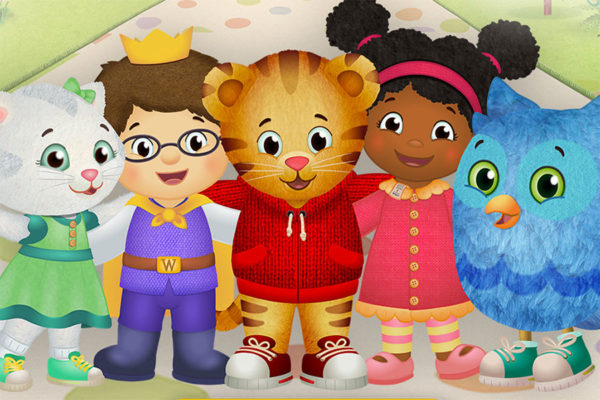
The Emmy-winning creator of ‘The Pradeeps of Pittsburgh’ has much to say about how the Burgh shaped him and his comedy
“It is a core memory,” says Vijal Patel. “I was up to my chest in freezing water, and my brother and sister couldn’t stop laughing.”
It was a harsh Pittsburgh winter years ago — bitter cold, with iced over rivers — and the 6-year-old newly arrived from India decided to test the surface. What could possibly go wrong? When he stepped on the ice, it instantly cracked beneath his feet, plunging him straight into the fountain. Soaked and freezing, his mom wrapped him up in her “decidedly feminine” winter coat. “But hey, I walked back to the car like I didn’t care,” he says now. “I looked like a rapper, freezing and strutting like I owned the place.”
This endearing memory captures Patel’s blend of humor, vulnerability, and resilience — qualities that infuse his work as writer and creator of the critically acclaimed show, “The Pradeeps of Pittsburgh.” For the Emmy-nominated writer, Pittsburgh is where his story began, where his identity was forged. And even after 25 years in Los Angeles, Pittsburgh’s quirky charm is still a part of him.
“That Point fountain is part of my DNA,” Patel cracks. “It’s in me.”
“The Pradeeps of Pittsburgh,” streaming on Amazon Prime Video and Freevee, is a funny and heartfelt look at an immigrant family’s chaotic journey through suburban America. Inspired by his own family’s experience, Patel created the show to highlight the immigrant experience while celebrating the humor and warmth that come with it.
The Pradeep family moves into a predominantly white neighborhood, navigating cultural clashes and awkward encounters, only to find themselves unexpectedly caught up in an FBI investigation about a local arson.
The Pittsburgh setting? That’s no accident. “I wanted the show set in Pittsburgh because it’s where I figured out who I was,” Patel says.
The L.A. Times calls the show “a funny, splendid, oddball new series from Vijal Patel, whose own family experience it reflects…”

Finding his storytelling voice
Raised in Gujarat, India until he was 6, Patel’s American journey began when his family moved to the Pittsburgh suburb of Monroeville in 1981. “We arrived in the middle of winter, and I’d never seen snow in my life,” he recalls. “We didn’t even have the right clothes—thin kurtas and pajamas—and there I was, marveling at these bare trees that looked dead and this white stuff falling from the sky. It was magical.”
The adjustment went beyond the weather to a full cultural reorientation. Patel’s parents, both engineers from Gujarat, moved here for the big American dream. Young Vijal quickly discovered he stood out as the only Indian kid in school. But it was this very otherness that sparked his love of storytelling. He became the de facto ambassador for India for his American classmates.
“People were always curious — what’s India like? And I realized I loved telling stories. Not because I thought my life was particularly remarkable, but because I could make it sound remarkable. Like, ‘Oh, yeah, there was this one time our school bus got stuck behind an elephant.’
“I realized I loved attention, not in a self-absorbed way, but because I loved making people laugh or think. My move from India gave me more than enough material.”
The stark contrasts between his hometown and his new city provided good material. “Coming from India, everything here fascinated me,” he says. “The football players looked like they were preparing for battle with all that gear. It seemed like something out of a movie, like they were gearing up for war, not a game.”
His observations and perspective would go on to become a hallmark of his storytelling, on and off the screen.
Despite his burgeoning love for comedy, Patel’s early academic path was very practical. After graduating from Wharton with a finance degree, he had a coveted job offer from Goldman Sachs in Manhattan, one of the most sought-after positions in finance. He was following the immigrant playbook: work hard, get into a good school, get a good job, and make his Indian parents proud.
But a phone call from his best friend, an English major already working in Hollywood, just a week before his big move to Manhattan, threw it all into question.
The call was unexpected, but his friend’s suggestion struck a chord. “You should try comedy writing,” he said, knowing Patel had always been the one to tell stories—funny stories, with a natural flow and a sharp punchline. Patel thought about it and soon realized that the stories he told could be his true calling. Suddenly, the corporate world felt like a distant, misplaced dream.

From Pittsburgh to Primetime
Patel packed up and moved to Hollywood, where he did indeed find his groove as a writer. Shows like “Black-ish” and “The Middle” (“among the century’s best family comedies,” praised the LA Times) became his playground for exploring themes of identity, family, and belonging.
In the process, he honed his knack for family storytelling—taking the same event and spinning it through the wildly different perspectives of each family member.
Now based in Los Angeles, Patel remains deeply attached to Pittsburgh. He often finds himself reminiscing on drives to Chicago, taking a detour to visit his old house in Monroeville’s Turnpike Gardens or his elementary school, Northern Pike. His formative Pittsburgh experiences are all over the show.
“The garbage trucks that I was obsessed with as a little kid? That’s in the show. The dead rabbits my dad made me shovel after they froze to death one winter? That’s in there, too.”
The time a row of dead rabbits appeared on his family’s porch is a real story that Patel has told countless times—is now immortalized in “The Pradeeps of Pittsburgh.”
“I remember standing there, just staring at these five dead rabbits like, What the hell is this? It was the dead of winter, and a neighbor left them for us. To this day, I have no idea why,” Patel says. “But the reactions from my family? Pure comedy.”
His dad, ever practical, shook his head and declared, “We’re here for our dreams, not for this nonsense.” Patel’s mom was horrified, pointing to the dead rabbits as proof that they should pack up and return to India. And his older sister, still bitter about leaving her life in India, shrugged and stormed off to her room. This wasn’t much worse than leaving her friends behind in India.
Patel, like Vinod—the youngest son in the show which is based on him—remembers his younger self philosophizing about the moment. “At least the rabbits died together, united as a family.”
The family didn’t report the incident. As one of the few families of color in a predominantly white neighborhood, they didn’t want to draw attention. Besides, Patel adds, in the grand scheme of things, it was a minor setback compared to the many bigger challenges they already faced as immigrants.
The rabbits were quietly disposed of, but the memory—and the absurdity of it—stuck with Patel. Over the years, people have asked him what they did about the incident. His answer? “Nothing. We moved on. That’s just what you do.”
In “The Pradeeps of Pittsburgh,” the rabbit incident serves as both a moment of levity and a deeper commentary on the immigrant experience.












